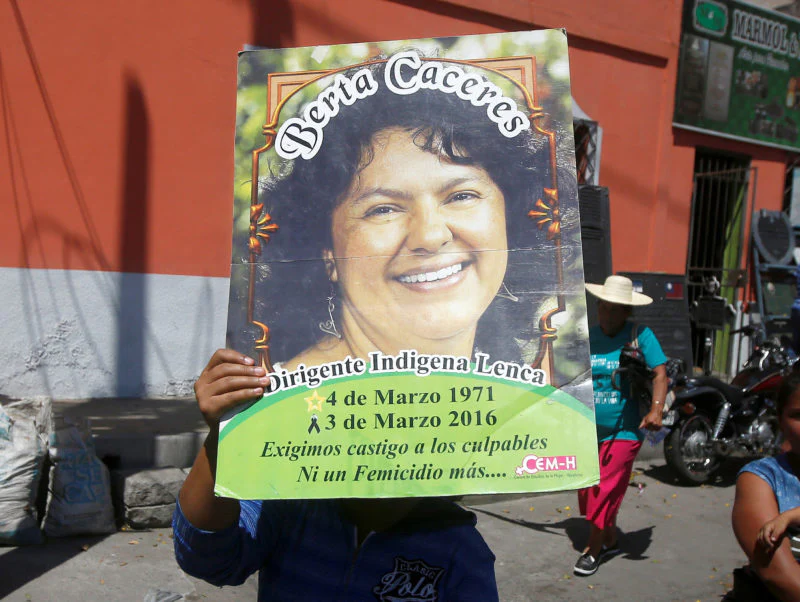Verso author fighting intimidation for covering the murder trial of indigenous activist Berta Caceres
Guardian journalist and Verso author, Nina Lakhani fighting intimidation from an online smear campaign which she believes could be led by a military intelligence group for reporting on the murder trial of Honduran indigenous leader Berta Cáceres.

Honduran indigenous leader Berta Caceres was shot dead in her home in March 2016 and her murder sparked international condemnation and demands for justice in a country where impunity is rampant.
Eight men have been charged over the murder and their trial was due to start yesterday but was postponed after lawyers representing Caceres’s family requested that the three judges be replaced over accusations of a cover-up.
Lakhani, who is based in Mexico and has reported for the Guardian for five years, has investigated the murder from the beginning and has travelled to Tegucigalpa, Honduras to be the only foreign journalist covering the trial.
Yesterday a press release began circulating linking Lakhani with various violent activities in the Bajo Aguan region of Honduras, which she called a hotbed of drug trafficking and paramilitary groups.
The release came after Lakhani had published her second article in two days about the criminal structures being protected by the prosecutors and judges, plus the links between the killers and military intelligence.
Lakhani said the release does not mention Caceres but was sent by a front or fake group that has attacked others at key moments throughout the case.
She added that it includes details suggesting military intelligence is behind it.
It is feared this smear tactic can be intended to encourage death squads to target the individual, keeping the hand of the state or its partners hidden.
Lakhani told Press Gazette: “It’s not the first time there’s been an online smear campaign against me linked to my Caceres coverage, but this time I’m in Honduras and linking me to known killers in a region of the country which is full of narcos and paramilitaries is worrying.”
Lakhani was previously targeted with a smear campaign in June 2016 when she published a story about Caceres’s name appearing on a military hit list shortly before she was killed, but that time she was not in the country.
Lakhani said: “I’m very concerned as I know how things operate here – it’s a dangerous place where people are killed with impunity. Anyone threatening the status quo is at risk.
“But international coverage for the trial, especially regarding its flaws, is really important so I will stay as long as it’s safe for me to be here.”
Lakhani is also writing a book about Caceres’s life and death, in which she will explain more widely the violence and impunity in Honduras.
“The Bajo Aguan features in the book and it’s possible that some dangerous people know that,” she said.
Lakhani has contacted the Guardian, which she said is assisting by writing to ambassadors and the Foreign Office as well as with some practical measures.
A Guardian News and Media spokesperson said: “We take the safety of our journalists, including freelancers, extremely seriously and take all necessary steps to protect them.
“Nina Lakhani is in Honduras to report on important stories which are in the public interest and we are in regular contact with her to assess the situation.”
Honduras is ranked 141st out of 180 countries in the Reporters Without Borders World Press Freedom Index 2018.
For more information, read Nina Lakhani's reporting in the Guardian, and follow the IM-Defensoras twitter account.
